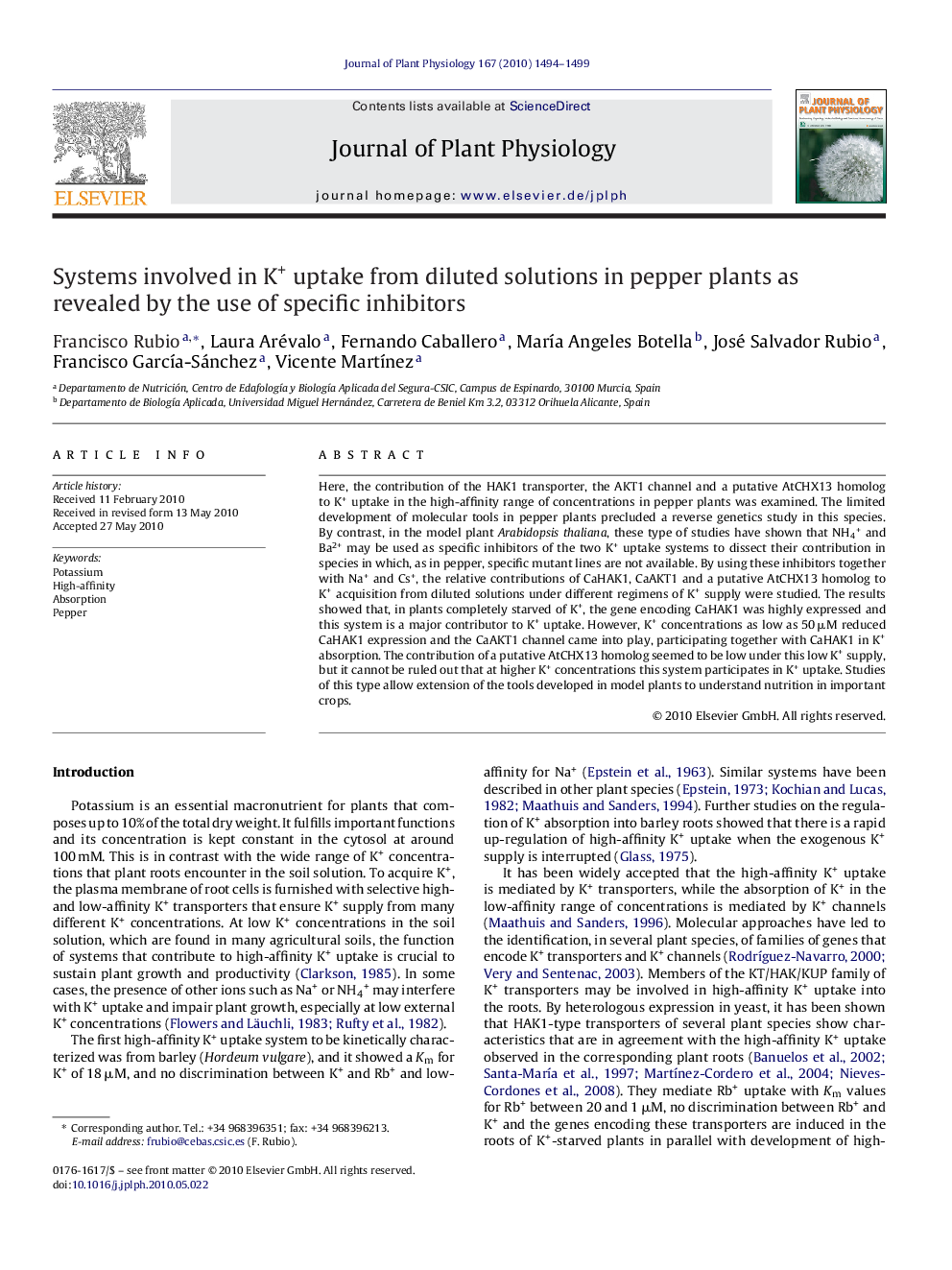| کد مقاله | کد نشریه | سال انتشار | مقاله انگلیسی | نسخه تمام متن |
|---|---|---|---|---|
| 2057815 | 1075974 | 2010 | 6 صفحه PDF | دانلود رایگان |

Here, the contribution of the HAK1 transporter, the AKT1 channel and a putative AtCHX13 homolog to K+ uptake in the high-affinity range of concentrations in pepper plants was examined. The limited development of molecular tools in pepper plants precluded a reverse genetics study in this species. By contrast, in the model plant Arabidopsis thaliana, these type of studies have shown that NH4+ and Ba2+ may be used as specific inhibitors of the two K+ uptake systems to dissect their contribution in species in which, as in pepper, specific mutant lines are not available. By using these inhibitors together with Na+ and Cs+, the relative contributions of CaHAK1, CaAKT1 and a putative AtCHX13 homolog to K+ acquisition from diluted solutions under different regimens of K+ supply were studied. The results showed that, in plants completely starved of K+, the gene encoding CaHAK1 was highly expressed and this system is a major contributor to K+ uptake. However, K+ concentrations as low as 50 μM reduced CaHAK1 expression and the CaAKT1 channel came into play, participating together with CaHAK1 in K+ absorption. The contribution of a putative AtCHX13 homolog seemed to be low under this low K+ supply, but it cannot be ruled out that at higher K+ concentrations this system participates in K+ uptake. Studies of this type allow extension of the tools developed in model plants to understand nutrition in important crops.
Journal: Journal of Plant Physiology - Volume 167, Issue 17, 15 November 2010, Pages 1494–1499